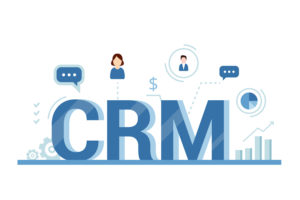 When it comes to CRM solution, there are plenty of opinions on how to make the most of it for long-term business success. Despite its popularity, experts warn that CRM software has the highest risk rate for failure!
When it comes to CRM solution, there are plenty of opinions on how to make the most of it for long-term business success. Despite its popularity, experts warn that CRM software has the highest risk rate for failure!
Many analyst firms have found that about 30 to 50 percent of CRM solution implementation have failed to help businesses derive their objectives. The staggering number is indicative of the dependency that firms have on CRM solution and the extent they go to force fit CRM strategies into their business.
Even companies like Salesforce revealed that while companies are witnessing 41 percent average increase in revenue per salesperson with CRM software, about 43 percent of businesses fail to use half of their CRM systems correctly.
Another research that surveyed about 150 organization, highlighted that 18 percent of companies using CRM solutions have issues that are directly related to inadequate strategies.
To ensure that CRM investment rewards your business in the long run, below are some essential steps for selecting the best custom CRM development company:
- Know About CRM Development Services Inside-out: News and reviews on CRM solutions are not enough information to decide what your business requires. CRM software implementation is not a passport to success in customer relations, marketing, and sales departments. The vendors’ capabilities in handling businesses of different industries, requirements, and size are important for making an informed decision. Not every business must choose out-of-the-box CRM software or turn to custom CRM development services providers. But, it is the duty of the users/businesses to confirm if the CRM solution has the all the relevant features and functionality to seamlessly manage their customer relations and optimize it for better profitability.
- Assess Your Organization’s Technical Strength: Implementing a CRM software that is difficult to understand and use can rob precious time and efforts. In many cases, businesses will have to invest in additional resources for training, customization and implementation process. And in worst case scenarios, the solution may also require the organization to revamp their existing technological and infrastructural architecture. To avoid such challenges, IT leaders must consult their teams and CRM software development companies to find a middle ground to balance their needs and facilitate it through the adoption of the right solution.
- Compliance and Best Practices: After the introduction of GDPR, most organizations and providers of software applications have become more conscious about using data in the most legitimate ways. As for industries like healthcare, meaningful use of data and HIPAA compliance already existed as major priorities ruling the adoption of the solution including CRM software. Regulatory mandates on data handling and usage must be known by business and IT leaders before stepping forward to implement CRM solutions to avoid fines and legal trouble.
- Mobility and Remote Access: Businesses of today carry out most of their functions and operations online and adopt practices to enable mobility. For this, businesses must choose between traditional, on-premise CRM software development or cloud-based, mobile CRM application. If an organization has departments scattered across the globe and operates in different time zones, a cloud-based delivery model would be ideal. In the case of the businesses that plan on enabling employees and teams to work from anywhere, anytime to boost productivity and optimize CRM efforts, investing in custom-built mobile CRM solution would be great.
- Integration and Team Collaboration: If your business purely thrives on attention from social media networks or requires swift marketing and communication with prospects to drive conversion with every customer engagement, integration would be a necessary feature in CRM solution. CRM software development companies can accordingly build integration features to link social media accounts, accounting software apps, marketing, communication, and sales tools for better results. In case the organization believes in providing multiple stakeholders and teams with a unified view of the CRM processes, they can look for cloud-based CRM applications.
- Budget: Budget is the most important factor before making a decision about the selection and adoption of CRM solution. As for small businesses it is typical to find them adopting cloud-based solutions that can easy to onboard and run. Large organizations with different hierarchical structures, divisions, and processes need much more customized CRM solutions without that can handle large volumes of users and data. Maintenance fee, configuration, frequent upgrades and customization that emerge at different timelines must be considered to avoid exceeding the budget plans and expenditure.
CRM solutions despite their advantages are tricky to unravel and understand if they seamlessly fit into the CRM strategy planned by the business. Frankly, there is no confirmed procedure or practice to follow that help simplify selection of CRM solution. Don’t allow numbers to fool into making wrong IT moves and divestitures that affect the financial health of your business.
If custom CRM software development is not your cup of tea, there is always an option to select a SaaS model wherein the CRM application is being hosted by the vendors and made available online. This is a smarter method for businesses that have a tight budget and are looking to run operations while keeping their costs on IT infrastructure at a bare minimum.
Lastly, CRM adoption and selection must include objectives better ROI, productivity and long-term customer satisfaction.
For more news and information on CRM software development, visit our site.











